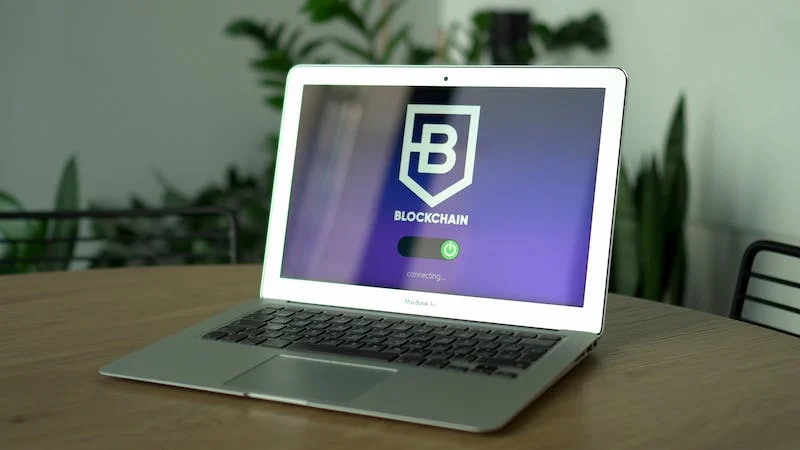Contents
Application of blockchain technology to public identity authentication
Blockchain technology has the potential to revolutionize public identity authentication in several ways by providing enhanced security, privacy, and efficiency.
- Self-sovereign identity (SSI): Blockchain can empower individuals to have control over their own identity information. SSI systems use decentralized identifiers (DIDs) and verifiable credentials, both of which are stored on a blockchain or a decentralized ledger. Individuals can choose what personal information they share and with whom, enhancing privacy and security. This reduces the risk of identity theft and fraud since users can selectively disclose information.
- Digital passports and IDs: Governments can issue digital passports or digital ID cards that are secured on a blockchain. These digital IDs can be easily verified by relying parties, such as border control or financial institutions, ensuring the authenticity of the document and the person’s identity.
- Decentralized authentication: Blockchain-based systems can replace traditional usernames and passwords with cryptographic keys. This can significantly enhance security by eliminating the need for centralized databases storing sensitive user information. Instead, users can authenticate themselves using their private keys stored in a secure wallet.
- Know Your Customer (KYC) and Anti-Money Laundering (AML): Financial institutions can use blockchain for more efficient and secure KYC and AML processes. A user’s identity and financial history can be verified more quickly and securely by accessing a distributed ledger containing verified data from other institutions and authorities.
- Identity verification for online services: Blockchain can facilitate secure identity verification for online services, such as social media platforms, e-commerce, and subscription-based services. Users can verify their identity without having to share sensitive personal information with these platforms, reducing the risk of data breaches.
- Secure voting systems: Blockchain technology can be used to create secure and transparent digital voting systems. By linking an individual’s identity to their vote on a blockchain, it becomes nearly impossible to alter or manipulate the results, enhancing the integrity of elections.
- Healthcare records: Blockchain can securely store and manage healthcare records, granting patients control over who can access their medical history. This ensures the privacy of sensitive health information while allowing authorized healthcare providers to access it when necessary.
- Academic credentials: Blockchain can be used to verify the authenticity of academic credentials and certificates. This reduces the risk of diploma mills and credential fraud, making it easier for employers and educational institutions to trust the qualifications of individuals.
- Notary services: Blockchain can serve as a decentralized notary, allowing individuals to prove the existence and authenticity of documents or digital files at a specific point in time. This can be useful for legal and business purposes.
- International travel and immigration: Blockchain can streamline international travel and immigration processes, enabling the sharing of verified passport and visa information securely and quickly, which can expedite customs and immigration procedures.
While blockchain technology offers significant advantages in identity authentication, it is essential to address issues like scalability, interoperability, and regulatory compliance to make these applications widely practical and secure. Blockchain-based identity systems must also ensure that user data is adequately protected, and privacy is respected.

Blockchain passport
A “blockchain passport” typically refers to the concept of a digital passport issued and stored on a blockchain or a distributed ledger. This digital passport is intended to be a secure and tamper-proof representation of a person’s identity and citizenship, often replacing or complementing traditional physical passports. Here’s how a blockchain passport might work and its potential benefits:
- Digital Representation: A blockchain passport is a digital representation of a person’s identity and citizenship information. This information can include personal details, biometrics, visa records, and other relevant data.
- Blockchain Storage: The passport data is stored on a blockchain, which is a decentralized and immutable ledger. This makes it difficult for unauthorized parties to alter or forge the passport information.
- Security: The use of blockchain technology enhances the security of the passport. Information is encrypted, and access is controlled through cryptographic keys, making it challenging for unauthorized individuals to access or manipulate the data.
- Self-Sovereign Identity: Some blockchain passport systems follow the principles of self-sovereign identity (SSI). In an SSI system, individuals have control over their passport information and can share it with authorized entities as needed, enhancing privacy and reducing the risk of identity theft.
- Verification: Relying parties, such as border control, airports, or other relevant authorities, can quickly and securely verify the authenticity of the digital passport by accessing the blockchain. This verification process is more efficient and less prone to human error.
- Reduced Fraud: Blockchain passports can help reduce passport fraud, counterfeit documents, and identity theft, as it’s challenging for criminals to manipulate or forge the information stored on a blockchain.
- Efficiency: The use of blockchain can streamline various processes related to international travel, immigration, and identity verification, making them more efficient and reducing wait times.
- Borderless Travel: Blockchain passports could potentially facilitate borderless travel, as they remove the need for physical documents. Travelers could pass through border checkpoints with only a digital wallet containing their blockchain passport.
- Record Keeping: Blockchain passports can also serve as a secure and unalterable record of an individual’s travel history, which can be useful for various purposes, such as immigration, tax, and legal matters.
It’s important to note that the development and widespread adoption of blockchain passports face significant technical, legal, and regulatory challenges. These include ensuring the privacy and security of personal data, international standardization and acceptance, and the protection of sensitive information from unauthorized access. Additionally, not everyone has access to the necessary technology to use a digital passport, so the coexistence of traditional and digital passports may be necessary for some time.
Application of blockchain technology to travel industry
Blockchain technology has the potential to bring significant improvements to the travel industry by enhancing security, transparency, and efficiency.
- Smart Contracts for Bookings: Blockchain-enabled smart contracts can automate and streamline the booking process. These self-executing contracts can instantly confirm reservations, issue tickets, and process payments when predefined conditions are met. This reduces the need for intermediaries and minimizes the risk of double bookings or reservation disputes.
- Identity Verification: Blockchain can enhance the verification of traveler identities. Travelers can store their personal information securely on the blockchain and grant permission to share specific details with airlines, hotels, and immigration authorities as needed. This simplifies check-in procedures and immigration processes.
- Loyalty Programs: Blockchain can make loyalty programs more transparent and user-friendly. Loyalty points or rewards can be tokenized and stored on a blockchain, enabling travelers to easily track and redeem their rewards across various partners in the travel industry.
- Baggage Tracking: Blockchain technology can improve baggage tracking systems. Travelers can have more confidence in the accuracy of their luggage’s location and status throughout their journey, reducing the likelihood of lost luggage.
- Supply Chain Management: For airlines, blockchain can enhance the supply chain management of aviation parts and maintenance records. The technology can help ensure the traceability and authenticity of components, reducing maintenance-related issues and improving passenger safety.
- Transparent Pricing: Blockchain can provide transparency in pricing by recording all transactions on a public ledger. This can help travelers ensure that they are getting the best possible price for flights, accommodations, and other travel services.
- Security and Fraud Prevention: Blockchain enhances the security of sensitive traveler data. It can help prevent fraud, identity theft, and unauthorized access to personal information. This is especially important in an industry where personal data is frequently shared.
- Payment and Remittances: Blockchain-based payment systems can reduce transaction fees, streamline international payments, and provide a more convenient method for cross-border payments, benefiting both travelers and travel companies.
- Digital Passports: As mentioned earlier, digital passports secured by blockchain technology can streamline the immigration and border control process, making it more efficient and secure.
- Destination Management: Local governments and destination management organizations can use blockchain to manage and distribute information about tourist attractions, accommodations, and local services. This can improve the overall tourist experience.
- Customer Reviews and Feedback: Reviews and feedback from travelers can be stored on a blockchain, making them more reliable and resistant to manipulation. This can help travelers make more informed decisions when choosing travel services.
While blockchain has the potential to revolutionize the travel industry, it’s essential to address issues like scalability, interoperability, and regulatory compliance. Widespread adoption and collaboration among industry stakeholders will be critical for realizing the full benefits of blockchain technology in travel.




